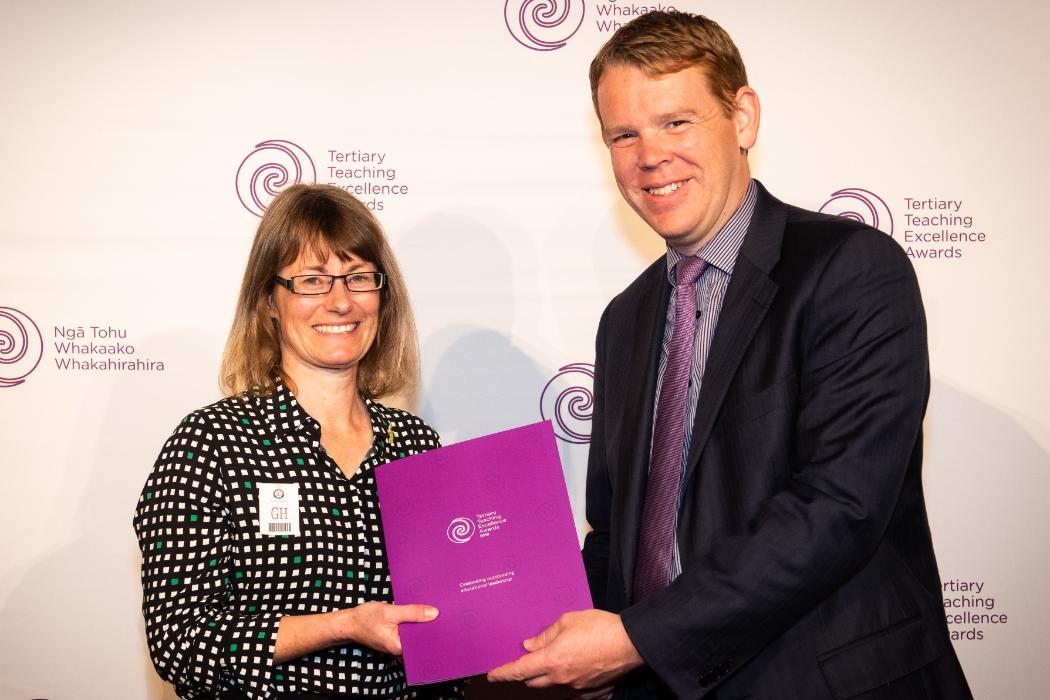In this episode, award-winning teacher and glaciologist Dr Heather Purdie talks about studying endangered glaciers, research, passion for the environment, and why virtual teaching will never replace real-life experiences with nature.
The climber, geographer, tramper, storyteller and teacher; has a life-long connection with the environment and believes that: “To really care for our environment we not only need to understand it, but also feel connected to it.”
Listen on Spotify | Stitcher | Youtube | Apple Podcasts
In this episode
04:19 My latest very large research project I've got on the go is exploring how crevasses affect melt rates of glaciers.
06:33 My hypothesis is that the way the crevasses disturb the surface may actually increase melt rates. It's quite new, so we've got some pretty exciting field techniques getting temperature sensors down crevasses.
08:37 From a science perspective, drones are really amazing in the ways that helping us understand landscape.
09:54 There's something almost intangible that you can't replicate with a video or a camera that you can only get by getting the students there (on the glacier) and letting them touch it. I don't think virtual field trips will ever phase out real field trips, but they have an awesome role to play in supporting teaching and learning and providing, and helping everyone get to the field. But yeah I'd never like to see a day where we don't actually get to go for a walk.
12:41 We're seeing quite a loss of foot access or walking access onto the glaciers with the way they're retreating.
13.55 As part of my teaching philosophy too, I really want people to feel connected to the environment, and I think developing a connection to the environment is really important.
15:03 For any of us working in teaching in the area of climate change, it's something we're quite mindful of and mindful of your students, that your course doesn't end up being doom and gloom you know because things are changing and we're seeing unprecedented change in and around loss of snow and ice around the world.
15:45 If everyone actually does something, and thinks about their lifestyle and impact on the planet, then cumulatively that will get somewhere. So every person you can engage and connect and get them passionate about this, then that's a good thing.
16:13 I love telling stories, particularly like Pūrākau, Māori legends and stuff are awesome. It's all about creating this connection to what you're teaching in your lecture theatre or the classroom. It's another way of thinking about the environment, not always just thinking about our landscape from a Western world view.
20:04 (MM) In one sentence, could you say why your work matters?
(HP) Because we only have one Earth, and so we need to look after it.
On the field, in the classroom
Field research on the Tasman glacier
In late February, Dr Heather Purdie led a field team on a research campaign to Tasman Glacier in the Southern Alps to undertake data collection for her Royal Society Te Apārangi Marsden Fast-Start project, which is exploring how crevasses influence glacier health.

Dr Heather Purdie wins national tertiary teaching award
Connecting students to the environment is as important as their education in the classroom, according to award-winning glaciologist Dr Heather Purdie, who received New Zealand tertiary teaching excellence honours at the 2019 Ako Aotearoa Awards. Read more here.
Meet our speakers

Heather Purdie
Dr Heather Purdie is an award-winning teacher and glaciologist in UC’s Te Kura Aronukurangi | School of Earth and Environment.
She is a passionate advocate for the environment and avid tramper and climber, who believes that “to really care for our environment we not only need to understand it, but also feel connected to it”. Dr Purdie specialises in the field of glaciology–specifically glacier mass balance, dynamics, and climate change–with a focus on mountain glaciers in Te Tiritiri-o-te-moana or the Southern Alps.
A Senior Lecturer at UC; she is known for her dynamic, engaging and student-centred teaching. Her passion for education and her outstanding career to date earned her a New Zealand tertiary teaching excellence award at the 2019 Ako Aotearoa Awards.
Dr Purdie is particularly interested in fostering an understanding of Māori culture and in 2018 she received the College of Science Kaupapa Māori Award in recognition of her sustained commitment to improving bicultural competency.
Dr Purdie is a Fellow of the Higher Education Academy and was awarded the New Zealand Geographical Society President’s Teaching Award in 2015 and a University of Canterbury Teaching Award in 2018.

Molly Magid
Molly Magid is an MSc student at UC. A recent graduate of Brown University, Molly is working on research in conservation genomics with Associate Professor Tammy Steeves from the School of Biological Sciences. Molly is passionate about finding ways to communicate science to the public in a clear, novel, and engaging ways. Most recently, Molly worked as the lead student producer on the podcast Possibly, which answers listener's questions about sustainability using relevant science research.

